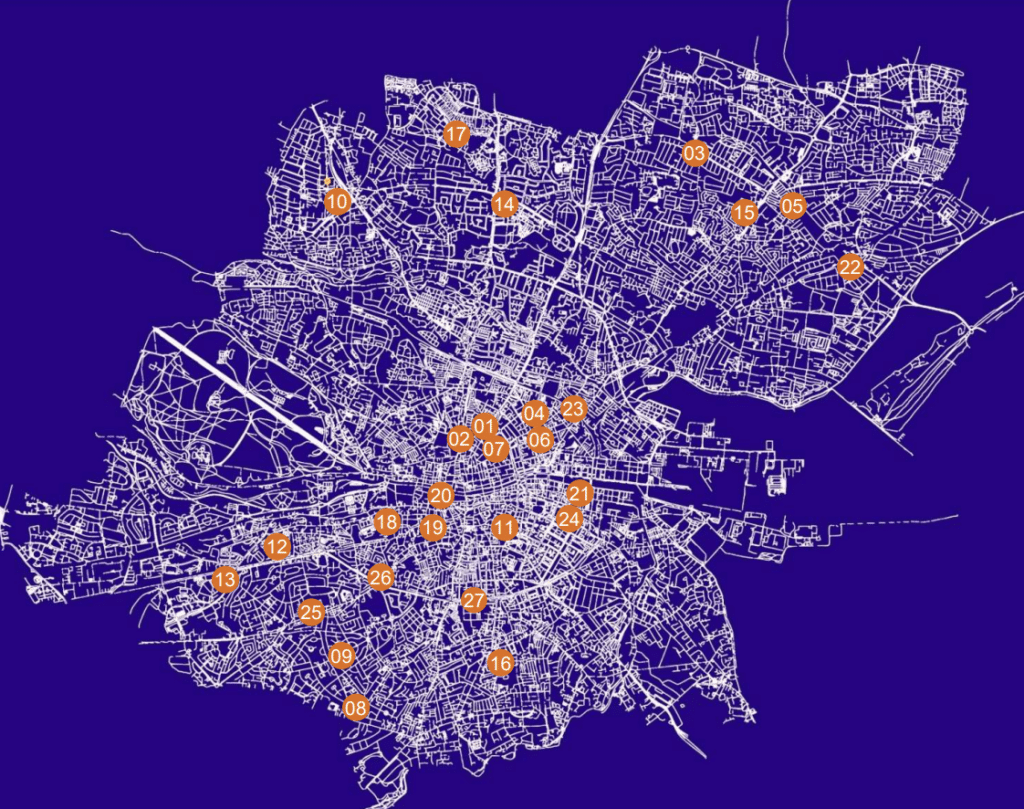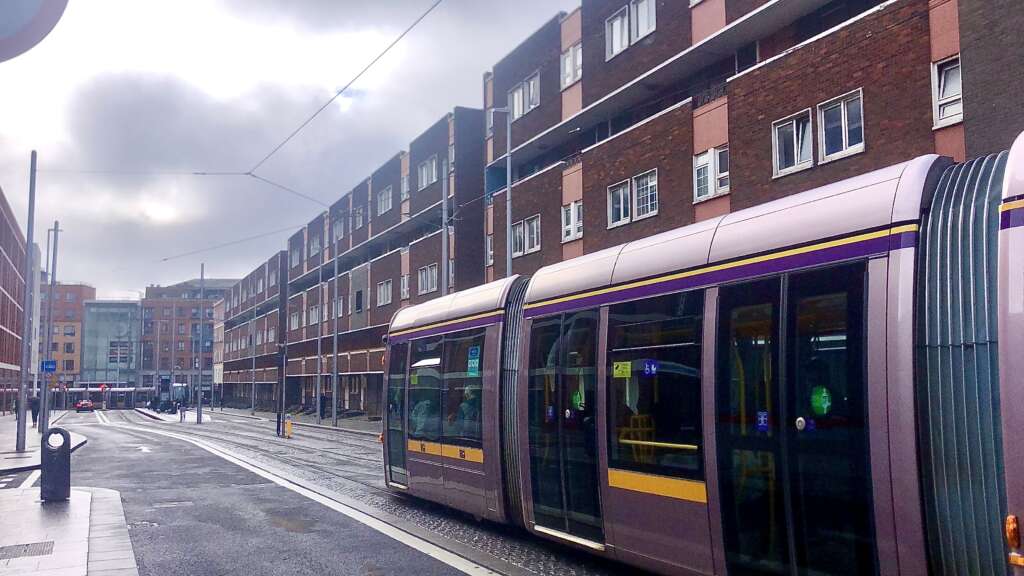GAP is helping Dublin City Council with the regeneration of the Dominick Street flats.
Dublin City Council is the biggest residential landlord in Ireland, with over 10,000 flats. However, many of its buildings are over 50 years old, and in need of repairs and retrofits: A council housing report from April 2023 says that 2,039 homes across the city are scheduled for regeneration.
In the past, it was common practice to demolish old social housing and replace it with new buildings. But a recent study pointed out that if Dublin is to meet its climate targets, it is much better to upgrade and retrofit than to demolish existing buildings.
Global Action Plan has now been invited to join an Expert Advisory Group that will develop guidelines on how the city should manage such climate-resilient retrofit projects.

Climate targets and social housing
Under the Paris Agreement, Ireland is to cut greenhouse gas emissions in half by 2030 and achieve net zero emissions by 2050. And one of the best places to start is the construction sector.
Emissions from the construction sector amount to some 37% of all CO2 emissions: about the same as the often demonised agricultural sector in Ireland. With the country requiring at least 40,000 housing units a year, it is clear that reducing CO2 emissions without radical changes in the construction sector is going to be extremely difficult.
That is why Dublin City Council has now decided to try a new approach, based on retrofitting existing buildings, and using its experience as a climate action educational and promotional tool.

GAP’s experience with the Social Regeneration project in Ballymun, and our experience in working with grassroots organisations and community groups all over Ireland, prompted Dublin City Council to ask us to join the Advisory Group for the first test case of this new approach, the regeneration of the Dominick Street South flats.
In the coming months, we will continue to update you on progress on this project, and also on our other community work.
We are excited to be able to play a role in a total rethink of Dublin’s approach to the upkeep of its social housing stock. And the experience we gather in this project will also contribute to our other new flagship programme: our new climate action project in Ballymun, which is funded by the Creative Ireland programme.
